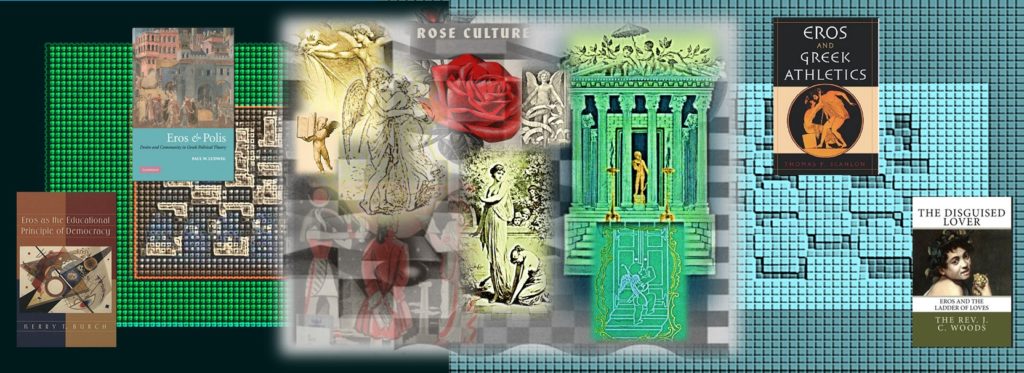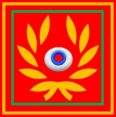
Did you know the ancient Greeks theorists treated political passions as under the domain of the erotic, or Eros, whom is also later known as Cupid in Latin and Kamadeva in India? There is a rich poetic, mystical and spiritual heritage concerning Eros/Cupid and Kamadeva and their presence raises a lot of issues not just in the Krishna traditions but also Christianity as well in various rich ways. Apparently its when communities are of such a small size that they can be considered more in their each individual entirety, and considering a community in entirety is exactly what happened in ancient Greece and furthermore entire communities were based on desire, or Eros. Thus arose the aspiration to transform the polity and polis into one family household binding together the citizens in the democracy to the ties of mutual affection. One could hence have the individual ties, but also the ties of various households within the greater household, and thus all very socialist resonant is this ancient. Thus sexuality, romance, love and civic friendship ARE the political attachments, are the bonds of political association and that is a sense we have found obscured in our current world of politics.
This understanding is apparently, according to the author Paul Ludwig, who wrote Eros and Polis, Desire and Community in Greek Political Theory (published by Cambridge University Press), covering all of this. He persuasively and academically claims that this understanding can be a possible bridge (and one which is missing in modern thought, and one which could exist, or be made more awareness of) crossing the private and public spheres, crossing between desire, Eros, or erotic love and public civic commitment, which is also a love too. His work is thus of importance to the theory of community foundations, and hence of communes, those modern gatherings which although existing before the 60s, flourished during that time and some are around today.
https://assets.cambridge.org/97805218/10654/sample/9780521810654ws.pdf
As Paul Ludwig could point the importance of Eros to political desire, so hence in another field, In Eros as the Educational Principle of Democracy by Kerry T. Burch we find an argument that Eros (hence Cupid and Kamadeva- although she doesn’t mention them but any discussion of Eros must include them by default if not in direct mention) in its form of love can also be treated as definitive principles of education. From critical pedagogy to democratic citizenship qualities as well as those values which are of great importance to democracy: questioning, the desire to know truth, to revise, to envision the perceived good, to participate in the community of inquirers and discussions etc. These are qualities which also are found strengthened in chess play I must add.
She covers Eros from the ancient to the modern in her argument, also including recent feminist accounts of Eros too, in a genealogical fashion with an analysis highlighting remarkable and yet again, unrecognized, affinities of the link between Eros and Democracy. Social dispositions are enabled by the emotional faculties hence also of Eros, which again compliments the work of Paul Ludwig. Added to his understanding Eros as an organizing principle, forwards the modern liberal paradigm, deepening it, extending it and furthering it in modern times, democratic political education too. Again I must add complementing that which chess can strengthen and teach.
I am basing this (like my other writing above) on review and description of book online. Thomas Scanlon’s Eros and Greek Athletics, takes a look into ancient Greek athletics and many important aspects of such. In the process there are various distinct parallels with modern sports and their place in modern society and I would add also chess. The athletics of the ancient Greeks were tied up with Greek religion, in the gender roles of young men and women and sexuality. Eros was also a major god of the gymnasium. Eros in the athletic sphere of the gymnasium was representative of a set of various life-affirming friendships, some of which were homoerotic. It was also representative of political freedom in the face of tyranny as well and thus this element complements the previous books on Eros and Democracy. Greek athletic culture as not so much a field of aspirational dreams was also a field of desire, wherein the fervor for competition was not only just for honor but was also for the cooperation for common social goals and thus again adding to the previous books mentioned. Not only that, but it is hence relevant to chess as a sporting competition today- there have been many insights on the relationship of chess to other sports, mainly basketball and also boxing and indeed we see a new sport emerge even, called chess-boxing! Scanlon doesn’t how his work could relates to the understanding of chess as sport, but his work is significant for the understanding of sport and its history generally so adds to our understanding of chess as a sport.
This work of Scalon is first of an in-depth study of the Greek culture of the body as found in athletics, as well as in sexuality, and also in gender formation. By exploring when and how athletics was linked with religion, as well as upbringing, gender and sexuality, how males and females made their different uses of the same contests, explores athletic nudity, even pederasty. Yet we see also how Greek Eros and social values move in progress, from an evolution from Homer onwards and into the Roman period. Scanlon shows the impacts of the athletic revolution, which began in the late seventh century B.C. in various ways. He also shows how public athletic festivals were quasi-dramatic performances of the tension between desire and death, the two aspects often associated with Eros at this time period by the ancient Greeks.
https://global.oup.com/academic/product/eros-and-greek-athletics-9780195149852?cc=us&lang=en&#
Rev JC Woods wrote a book called The Disguised Lover: Eros and the Ladder of Loves attempting to disentangle from the great and beautiful work of Plato the meaning in Plato’s art. Showing how relating philosophy to romantic love by Plato in his dialogue Symposium, his work of philosophy, and by pulling the strings of this shadow play, Plato in the process creates a work of art. In Plato’s work, Socrates goes to a party given by the tragic poet Agathon where a discussion breaks concerning the nature of romantic love. This discussion, is Plato’s art as JC Woods shows, but as it issues forth in a competition of speeches in praise of love it is also art with an element of competition too, which hence fits in with the sportive aspect of sportive competition in athletics as shown in the previous book as well as that in chess as well. Of course Duchamp has revealed chess as an art too. Chess is an art, chess is also competition and also here is a discourse in competition, a competition of speeches crafted artfully and also a key text related to ancient Eros, so should be of interest.
https://www.goodreads.com/book/show/11123057-the-disguised-lover
I hope to make a study of these books in the future and see their subject as foundational.
